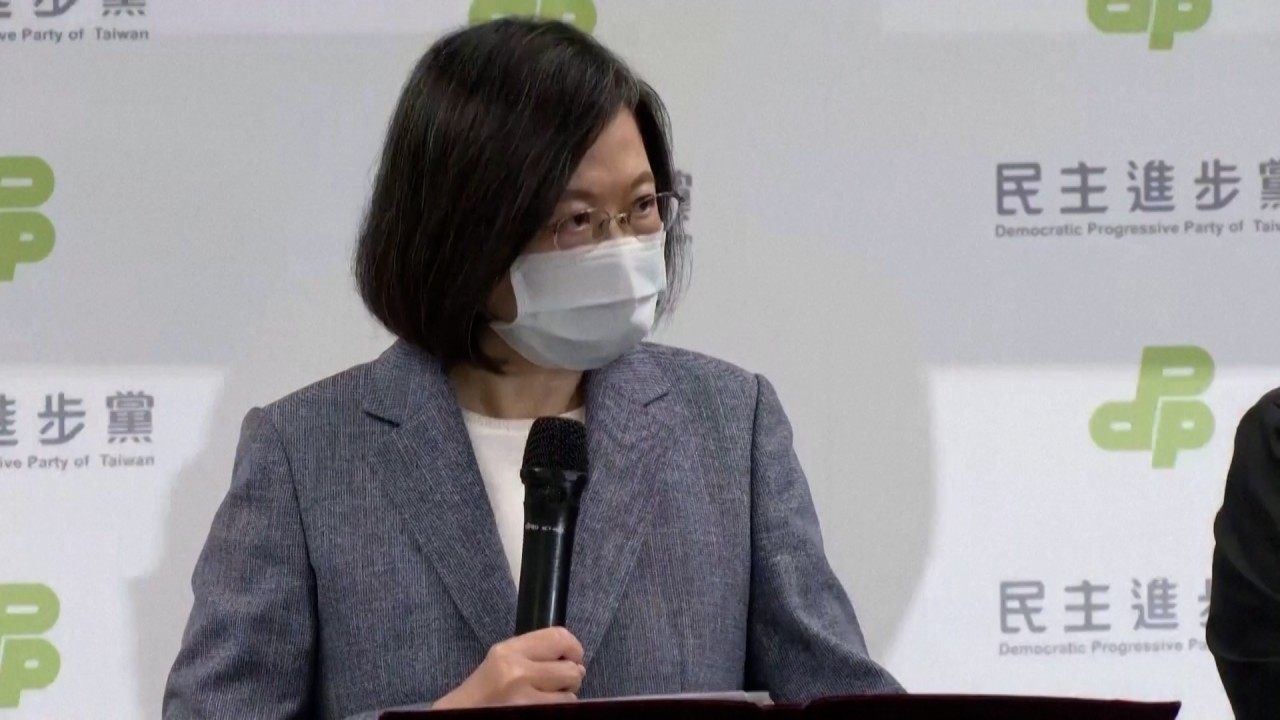
Taiwan’s vice-president William Lai faces race against time to secure Democratic Progressive Party’s hold on power
- The party’s new chairman and most likely presidential candidate took over after a heavy defeat in local elections
- His past comments on independence have caused concern in the US and risk provoking Beijing and Lai is now trying to promote a more pragmatic stance
Lai, 63, the island’s vice-president was sworn in as the party’s new chief on Wednesday, following his victory in last Sunday’s uncontested election for chairman.
A series of separate scandals where some key candidates in the local elections were accused of plagiarising their academic theses prompted further doubts about its integrity.
Taiwan’s premier resigns, cabinet reshuffle expected soon
Lai has pledged to reunite the party after a series of factional struggles broke out during the election campaign, as well as crack down on corruption and respond to the demands of young voters – a number of whom abandoned the DPP during the November elections because they felt it failed to listen to differing viewpoints and public criticism.
He also assured the island’s public he would do his best to safeguard Taiwan, and promote democracy, peace and prosperity in the face of growing threats from Beijing.
Lai needs to prepare the party for next January’s presidential and legislative elections, but practically speaking by March he must have started the process of selecting candidates and getting the campaign structure in place.
Analysts said with such limited time, Lai would have a tough time reforming the party and winning back public trust.
He must also take a stance on independence that will avoid provoking Beijing and alarming Washington, the island’s main supporter, if he wants to convince the public he will be a safe pair of hands.
“Lai needs to assure the United States he would never be a troublemaker if he wants to win the trust of Washington to support his bid for the presidency in 2024,” said Shih Cheng-feng, a retired political science professor at National Dong Hwa University in Hualien, eastern Taiwan.
The US, in common with most countries, does not recognise Taiwan as an independent state, but is opposed to the use of force to alter the status quo.
“There are concerns in Washington about his experience and that of his advisers on international or cross-strait affairs,” Ivan Kanapathy, a senior associate at the Centre for Strategic and International Studies and a former National Security Council official during Donald Trump’s presidency, told the Financial Times recently.
Lo Chih-cheng, a DPP legislator and a former political science professor, said that while his comments on independence had concerned Washington, “Lai later added the attribute ‘pragmatic’ to ‘Taiwan independence worker’, placing the emphasis on pragmatism rather than the worker part”.
He also said that Lai had also repeatedly said he would follow Tsai’s cross-strait policy.
Lo said many US politicians had visited Taiwan in recent months and had more chances to interact with the vice-president. “This allows them to have a better understanding of his pragmatic orientation, which would more or less head off their worries about him,” Lo said.
Taiwan cracks down on mainland China noodles that said ‘you’re Chinese’
Pressed by reporters at a news conference after the swearing-in ceremony on Wednesday over what he meant by “pragmatic Taiwan independence worker”, Lai said: “I pragmatically believe that Taiwan is already a sovereign independent nation and therefore there is no further need to declare Taiwanese independence.”
He said the sovereignty of the Republic of China –Taiwan’s formal name – and that of the People’s Republic of China were not subordinate to each other. “The future of the ROC Taiwan can only be decided by the 23 million people here,” Lai said.
He said under his leadership, the DPP would follow Tsai’s approach on cross-strait issues and he would do his utmost to maintain the status quo of regional peace and stability.
But Tang Yonghong, deputy director of the Taiwan Research Centre at Xiamen University in mainland China, however, said Lai’s comments would not help ease the tensions between Taipei and Beijing, and would only lead to a head-on collision.
“Though he said there was no further need for Taiwan to declare independence, his claims that Taiwan is already a sovereign independent nation and that the two sides are not subordinate to each other are tantamount to declaring the independence of Taiwan,” Tang said.
“This is equivalent to one country on each side of the Taiwan Strait or one China, one Taiwan,” he said, adding such remarks could not help peaceful cross-strait relations but risked turning Taiwan into the next Ukraine.
Beijing, which regards Taiwan as part of its territory, has vowed to use force to attack Taiwan and bring it back under control if the island ever tries to declare independence.



